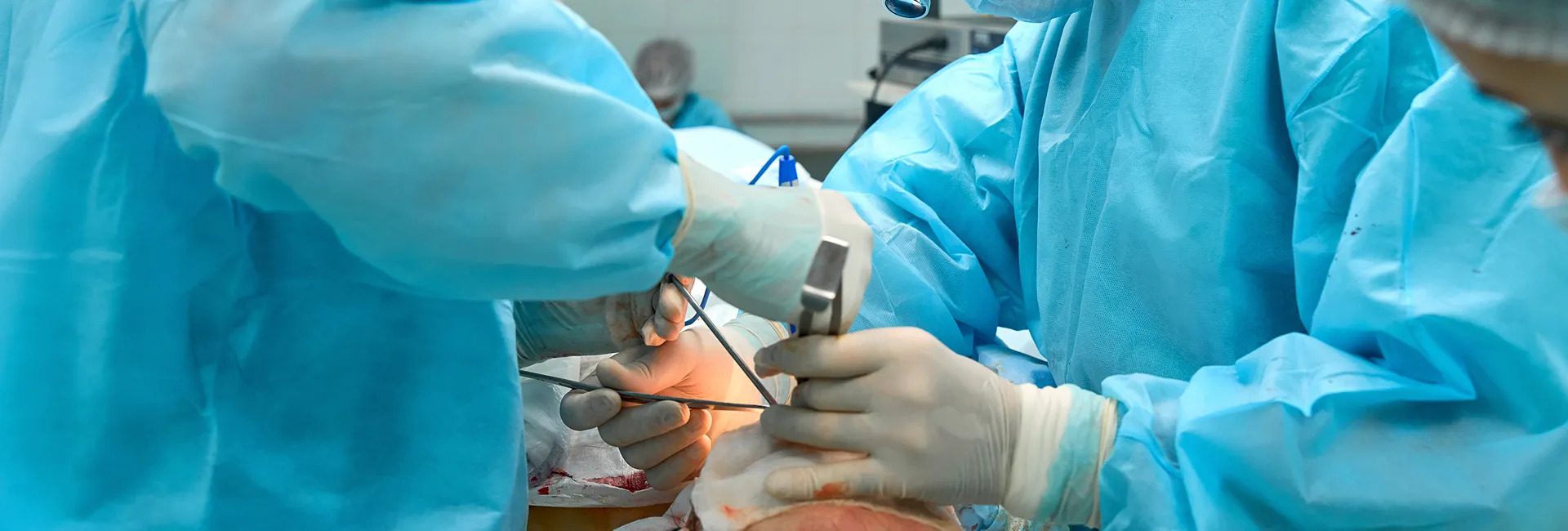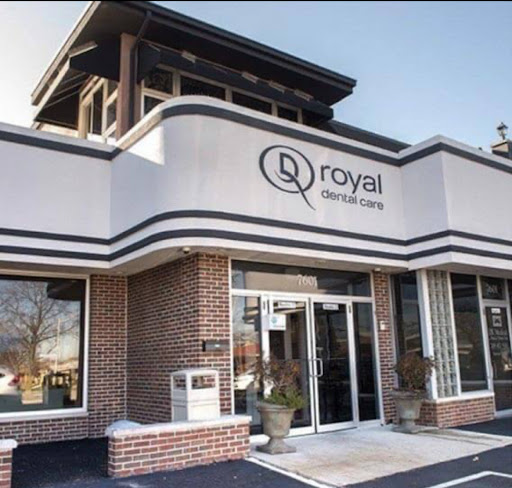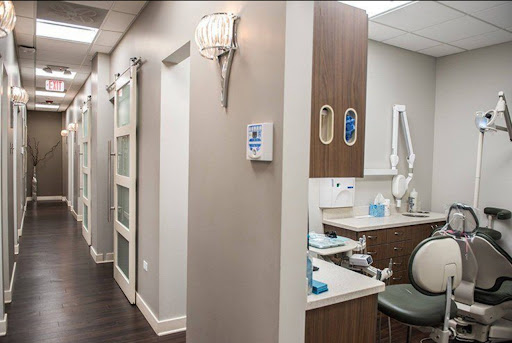Emergency Dentistry
At Royal Dental Care, our team understands how frightening and inconvenient dental emergencies can be. We also know how much of a difference it can make for patients and families to have a trusted oral healthcare team already standing by who can accommodate them on short notice. That’s what we strive for here in the Norridge and Schaumburg communities. Please don’t hesitate to contact us for assistance, whether you’re an established patient or brand-new to our dental offices.

Types of Dental Emergencies

Broken or Chipped Teeth
Severe, smile-related injuries and trauma can occur anywhere—on the playground, during a big sports game, and even while running up the stairs at work for a meeting. If you’ve broken or chipped a tooth, first, rinse your mouth out with salt water. A sharp or jagged edge can cut the inside of your mouth, so place a piece of dental wax on the broken area if possible. Retrieve any tooth fragments from a broken or chipped tooth and take them with you to the dentist.
A broken or chipped tooth doesn’t always hurt, but if it does, you can use over-the-counter pain medication to control any discomfort. Do not bite down on the broken tooth; only eat soft foods until your appointment.
Knocked Out Permanent Tooth
If your accident or facial trauma completely knocked out a tooth, it’s important to remember that time is absolutely of the essence if you hope to preserve the damaged structure. First, call your emergency dentist immediately to let them know you’re coming in. Find the tooth as quickly as possible, and do your best to preserve it until you can get to the emergency dentist. Always pick it up by the crown (the flat side you chew with), not the root; otherwise, you could damage the tissue. Rinse the tooth off and try to put it back in the socket, then hold it in place with gauze. If you can’t put it back, keep it in a glass of milk, a saline solution, or in the space between your gum and cheek. DO NOT place it in water, as water can damage the root.

Experiencing a dental emergency?
The team at Royal Dental urges you to pick up the phone and contact one of our practice locations right away.
We can provide first-aid tips over the phone and arrange for in-office emergency care ASAP.

Toothaches
Whether it comes on suddenly or has persisted for a few days, severe tooth pain should be dealt with immediately. The longer you wait, the more likely the problem (and pain) will worsen, and at best, you may end up with a costly or complicated procedure. At worst, an untreated infection in your tooth or gums can spread, resulting in potentially serious complications that can affect the rest of your mouth, your sinuses, and even your brain.
Sometimes, a toothache is simply due to a piece of food stuck between your teeth; in these cases, you might be able to solve the problem by yourself with dental floss. Otherwise, contact your dentist if the pain lasts longer than a couple of days, is accompanied by symptoms such as fever or an earache, or causes swelling in the jaw.
Pain in Your Gums or Other Soft Tissues
Another major type of dental emergency isn’t as sudden as an injury— in fact, its development can happen so gradually that many patients don’t even realize what’s happening until they wake up with severe pain in their mouth. Swelling or tenderness of the gums is often a sign of gum disease but can also signal that something more serious is going on. An infection of the gums or an abscess can manifest quickly and cause significant discomfort. And, like a toothache, any sort of sore or abscess in your mouth should be addressed immediately to prevent the spread of infection.


Lost Filling or Crown
In most cases, when a filling or crown falls out, it’s not necessarily a dental emergency. However, the sooner you get it repaired, the less likely you are to damage your tooth. Plus, the portion of the tooth that was once protected by the filling or crown is extremely sensitive and, when exposed to pressure, cold or hot foods, or air, can cause pain.
If you have your lost piece of dental work, clean it off and try to replace it in your mouth using dental cement, denture adhesive, or even Vaseline. Don’t use any type of household glue, as they can be toxic. Once you see your dentist, they will replace the crown or filling with a new one and send you on your way.
Root Canals
During root canal treatment, our team will carefully access the tooth’s inner pulp chamber and canal(s) with special instruments to remove disease-causing bacteria. Our goal is to prevent further decay and reduce the likelihood that further, more extensive restorative care will become necessary in the future. Despite this procedure’s “bad” reputation, don’t worry—today’s modern techniques and technologies have made it very comfortable and successful. Sedation dentistry is also available upon request!
Sedation dentistry is available as needed to help patients feel genuinely relaxed throughout this procedure, and we will also start planning a high-quality replacement (if needed) right away so that any time spent without a complete, strong smile is minimized to the fullest extent possible.


Tooth Extractions
While extracting one or more natural teeth will never be our doctors’ first recommendation for patients in need, this service may become necessary in dire circumstances to improve someone’s health and well-being, such as when:
- A tooth is suffering from advanced decay and cannot be successfully restored
- A tooth has been traumatically injured
- Orthodontic treatment is needed, and there isn’t enough room left in the mouth to accommodate movement
- A young patient’s “baby tooth” is causing problems for the development of the adult version and preventing a successful eruption
Broken Wires, Brackets, or Other Orthodontic Problems
While most people follow the instructions about what to avoid when you have braces, sometimes the allure of something chewy or crunchy is too much to ignore. If you’re lucky, nothing will happen, but the consequences may also be a broken bracket or wire or another braces-related catastrophe. In other cases, sometimes your orthodontia just malfunctions with no warning, leaving you with a wire poking you in the cheek or a loose bracket hanging off your tooth. Whatever the case, leave the offending piece of hardware where it is and make an emergency dental appointment.

Why Choose Royal Dental Care For Emergency Dentistry?
Same-Day Appointments Available
Open Evenings & Saturdays
State-Of-The-Art Cone Beam & More Digital Technology
Frequently Asked Questions About Emergency Dentistry
At Royal Dental Care, we want you to have the information you need to react appropriately to a dental emergency and the knowledge you need to avoid them altogether! Below are some common questions regarding emergency dentistry and how you can better protect your teeth from harm.
What if I experience a dental emergency during regular business hours?
At Royal Dental Care, we know that dental emergencies can happen at any time of the day. That’s why we set aside time in our dentists’ schedules for potential emergencies.
What should be in my dental emergency kit?
Your kit should definitely include the contact information for your dentist in Schaumburg or Norridge. You should also include saline, gauze, a handkerchief, a small container with a lid, ibuprofen, dental wax, and a cold compress.
When should I go to the emergency room for a dental emergency?
If your mouth or face is bleeding heavily or swelling is extreme, you should seek medical treatment immediately, even before coming in for emergency dental care. If you experience an impact to your head, including your face, teeth, or jaw, you should also go to the emergency room first in case of a concussion.
Other reasons to go to the ER before seeking treatment for a dental emergency include fever or chills or problems breathing or swallowing. These symptoms, coupled with an emergency dental concern, may mean you have a serious or even life-threatening complication that should be addressed immediately.
How Can I Avoid Dental Emergencies?
Good oral hygiene – brushing at least twice a day, flossing at least once, not eating too many sugary foods and so on – goes a long way towards avoiding emergencies caused by tooth or gum infections. To avoid physical trauma and injury to the teeth, avoid chewing on ice, popcorn kernels and hard candy that can cause cracks. Never use your teeth to open containers either; use scissors or a more appropriate tool. If you play sports, a mouthguard can be used to help mitigate the risk of injury. If you suffer from bruxism (nighttime teeth grinding), get a nightguard to prevent further weakening of the enamel.
Emergency Dental Care in Norridge or Schaumburg
With several highly skilled dentists on staff, two convenient office locations, and a wide variety of specialty services and state-of-the-art technology available, Royal Dental Care is the ideal choice for patients in need of emergency attention. Your needs come first—no exceptions.
That’s why we strive to accommodate severe dental emergencies as soon as we can, preferably on the same day as your initial call. Our team will never ask you to wait days or weeks for relief! If you are experiencing a dental emergency, contact our office as soon as possible at Norridge (847) 999-7620 or Schaumburg (773) 232-3929 for immediate, professional dental care.
























